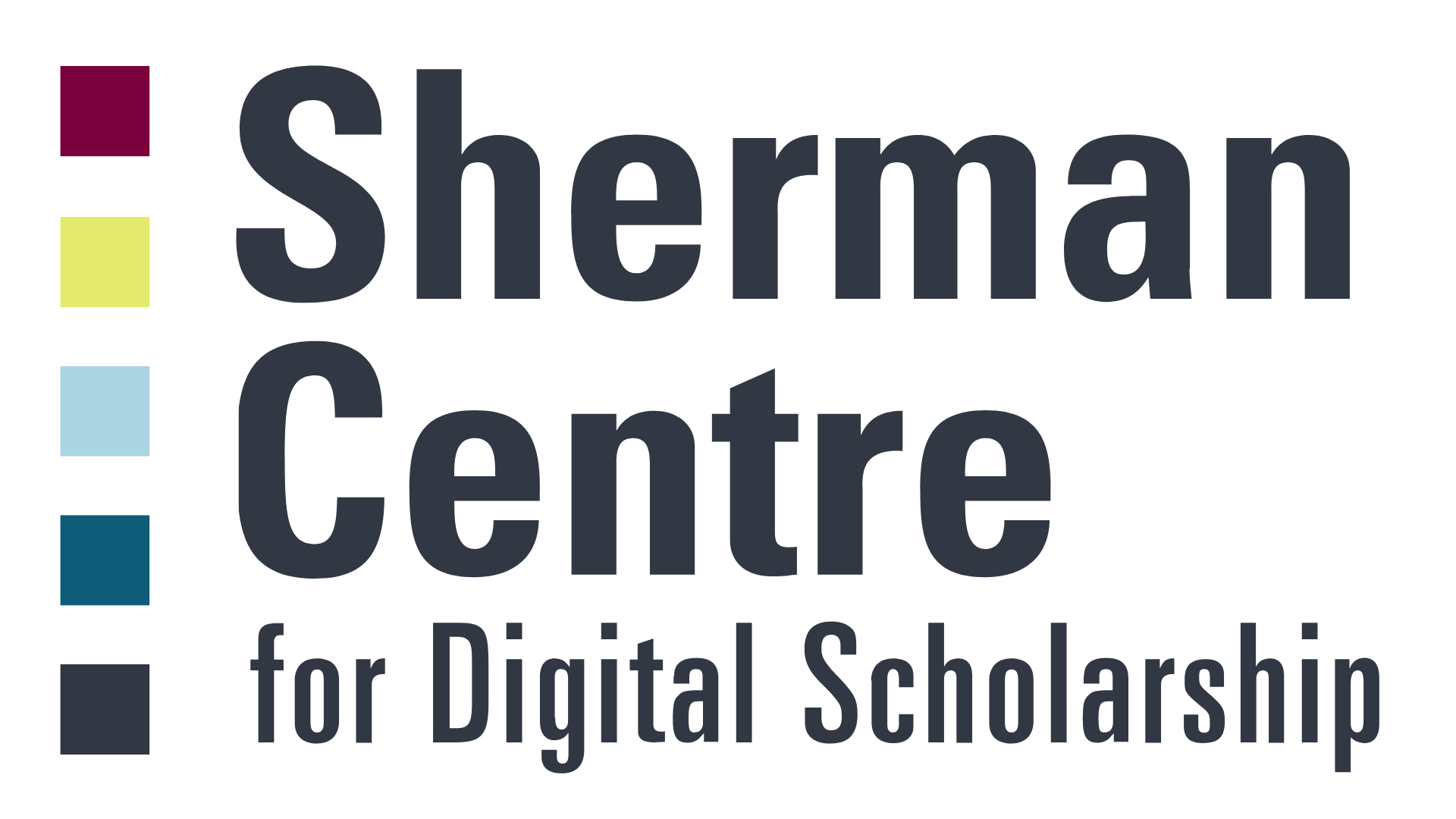By Brad McNeil, Graduate Resident
My name is Brad McNeil, and I’m a third-year PhD Candidate in McMaster’s Communication, New Media & Cultural Studies program. My doctoral research sits within the nexus of platform governance, an emergent body of scholarship invested in identifying the complex layers of governance relationships that structure or influence social media platform’s policies (Gorwa, 2019). This body of research understands social media platforms as privately owned “sites and services that host public expression, store it on and serve it up from the cloud, organize access to it through search and recommendation, or install it onto mobile devices” (Gillespie, 2018, p. 1). Ultimately, platform governance is a field that acknowledges that while platforms self-govern, “they are also themselves subject to governance on all fronts, and that their conduct of governance is directly informed by local, national, and supranational mechanisms of governance” (Gorwa, 2019, p. 5). To date, platform governance research has disproportionately focussed on Western contexts and institutions, with little attention paid to the global south (Solomun, 2021). My research seeks to create a more global research agenda for platform governance by understanding the strategies that civil society groups operating in the global south develop and implement to resist the content moderation policies enacted by social media platforms.
Platform governance isn’t just about rules and regulations created by platforms; it’s about power dynamics, socio-political contexts, and the voices often marginalized in the mainstream policy-making discourse. During my residency at the Sherman Center, I plan to design and collect data for an open database which traces civil society groups operating in Indonesia and Kenya and records the numerous strategies of resistance they employ to overcome the negative social and political effects of platform’s content moderation policies. Content moderation implemented by social media platforms is “the organized practice of screening user-generated content… in order to determine the appropriateness of the content for a given site, locality, or jurisdiction. The process can result in UGC being removed by a moderator, acting as an agent of the platform or site in question” (Roberts, 2017, p.1). Because countries in the Global South are often treated by global social media corporations as peripheral markets, there are less resources to develop content moderation tailored to local level socio-political issues. For instance, in October 2021 leaked documents revealed that Facebook developed an opaque system to classify countries into tiers which determined the amount of resources Facebook would dedicate to content moderation around key elections (Newton, 2021). This lack of resource for content moderation is disturbing as the 2022 Kenyan election was marred by trolls and an onslaught of hate speech online which sought to influence the election results. In the absence of platform resources for content moderation, platform users and citizens may establish grassroots initiatives for content moderation ranging from fact checking protocols, digital literacy workshops, and counter speech training for users/citizens (Haristya, 2022). This open database will contribute to a larger governance mapping project related to my dissertation work that will develop a typology of civil society types operating in the Global South.
Methods within the realm of digital scholarship such as database creation and counter- map building as the creation of maps that challenge dominant power structures are critical to platform governance scholarship as it seeks to render visible complex constellations of governance relationships which influence platform’s policies. In fact, open databases, like the Platform Governance Archive developed at the Humbolt Institute for Internet and Society, and the AI Civil Society Database developed at Stanford’s Digital Society Lab are already being put to use in the nascent field of platform governance to trace historical changes in platform policies and governance relationships. However, these databases tend to be platform and Western-centric, being less focused on grassroots civil society initiatives. The open database I hope to create at the Sherman Center will to contribute to a more nuanced understanding of platform governance that emphasizes agency and resistance, revealing that platform governance does occur, in varying degrees of success, in the peripherals of platform economies and beyond formal stakeholder forums (De Gregorio & Stremlau, 2021).
For me, the Sherman residency is an opportunity to build digital scholarship skills that I might not have otherwise developed outside of such a supportive and interdisciplinary program. At the Sherman Center, I aim to delve into the fundamental principles of database development. Creating a database involves making decisions about what counts as data, and I hope the Sherman Center will help me be more mindful about the decisions I make as I create this open database. As I intend to build an open database, there are many variables that must be considered. For instance, I want to ensure that the data I am collecting can be understood by other researchers, civil society groups, and individuals. I will learn best practices for data collection, management and sharing. For example, I want to avoid creating single use data. As I embark on the journey of database construction, I recognize the importance of securely managing and publishing sensitive data. Many of the civil society groups I aim to profile may operate within contexts of heightened vulnerability, underscoring the need for ethical considerations in handling their data. Furthermore, I look forward to immersing myself in workshops and regular discussions with peers offered by the Sherman Center, where I anticipate deepening not only my understanding of data management principles but also more broadly about the process of learning and developing unique methods of digital scholarship.
About Brad McNeil
Brad McNeil (He/Him) is a Ph.D. candidate in the Department of Communication Studies and Media Arts at McMaster University. He completed an MA in History at University of Waterloo. His research interests lie at the multiple intersections between freedom of expression, content moderation, and platform governance. His doctoral research focuses on the ways civil society groups in the Global South organize to resist the negative effects of global platform’s content moderation policies. During his residency at the Sherman Centre, Brad will create a database of civil society organizations (CSOs) operating in the Global South which are engaged in efforts to reform the content moderation policies of global social media platforms. This database will contribute to a larger governance mapping project that will develop a typology of civil society types operating in the Global South. This project seeks to develop a more global research agenda for platform governance by mapping out the web of governance relations between CSOs of the Global South and large transnational NGOs that represent them in formal, institutionalized multistakeholder governance forums for platform governance. This project understands civil society in the Global South as a site of resistance to harmful social and political effects of platform’s content moderation policies, which often come in the form of fact checking protocols, digital literacy workshops, and counter speech training for users/citizens, as a form of governance in and of themselves.
References
De Gregorio, Giovanni and Stremlau, Nicole, Platform Governance at the Periphery: Moderation, Shutdowns and Intervention (2021). in Judit Bayer and others (eds), Perspectives on Platform Regulation. Concepts and Models of Social Media Governance Across the Globe (Nomos 2021) , Available at SSRN: https://ssrn.com/abstract=4045036 or http://dx.doi.org/10.2139/ssrn.4045036.
Gillespie, T. (2018). Regulation of and by Platforms. In J. Burgess, A. Marwick, & T. Poell, The SAGE Handbook of Social Media (pp. 254–278). SAGE Publications Ltd. https://doi.org/10.4135/9781473984066.n15
Gorwa, R. (2019). What is platform governance? Information, Communication & Society, 22(6), 854–871. https://doi.org/10.1080/1369118X.2019.1573914
Haristya, S. (2022, November 8). Indonesia civil society has a view on content moderation. Context. https://www.context.news/big-tech/opinion/indonesia-civil-society-has-a-view-on-content-moderation
Katzenbach, C., Magalhães, J. C., Kopps, A., Sühr, T. & Wunderlich, L. (2021). The Platform Governance Archive. Alexander von Humboldt Institute for Internet and Society. https://doi.org/10.17605/OSF.IO/XSBPT
Newton, C. (2021, October 25). Leaked Facebook documents reveal how the company decides which countries need protection. The Verge. https://www.theverge.com/22743753/facebook-tier-list-countries-leaked-documents-content-moderation
Prem, E., & Krenn, B. (2024). On Algorithmic Content Moderation. In H. Werthner, C. Ghezzi, J. Kramer, J. Nida-Rümelin, B. Nuseibeh, E. Prem, & A. Stanger (Eds.), Introduction to Digital Humanism: A Textbook (pp. 481–493). Springer Nature Switzerland. https://doi.org/10.1007/978-3-031-45304-5_30.
Roberts, S. T. (2019). Behind the Screen: Content Moderation in the Shadows of Social Media. Yale University Press. http://ebookcentral.proquest.com/lib/mcmu/detail.action?docID=5783696
Solomun, S. (2021, March 22). Toward a Global Platform Governance Research Agenda. Centre for International Governance Innovation. https://www.cigionline.org/articles/toward-global-platform-governance-research-agenda/
Standford’s Digital Civil Society Lab: AI Civil Society Database, compiled by the Digital Civil Society Lab, (February, 24, 2024).



Leave a Reply